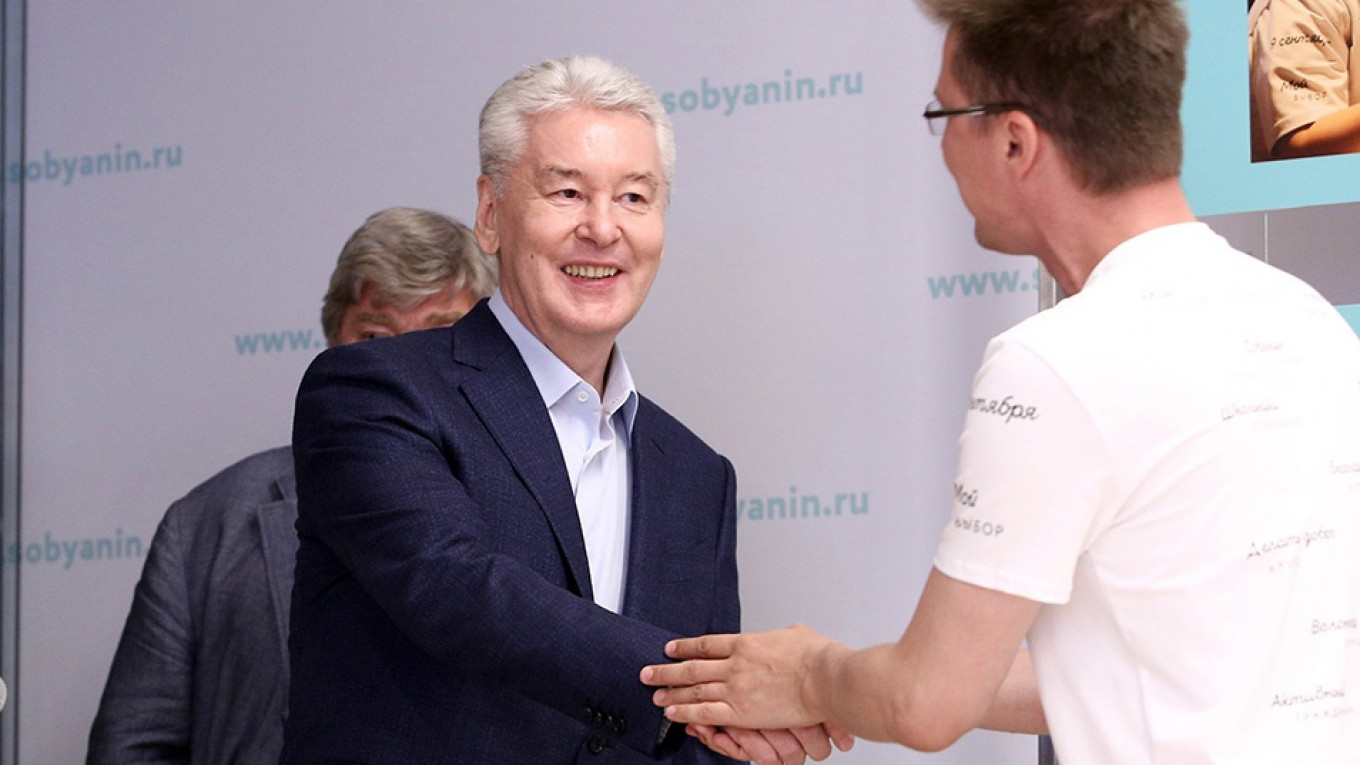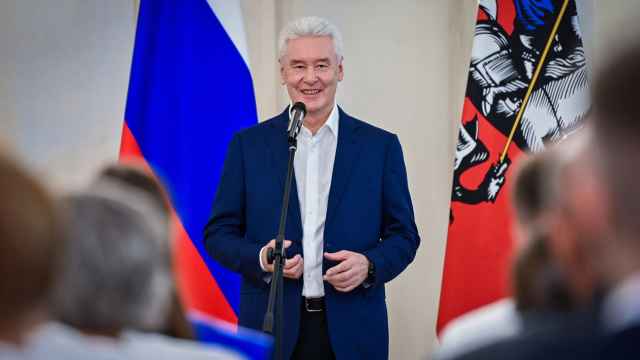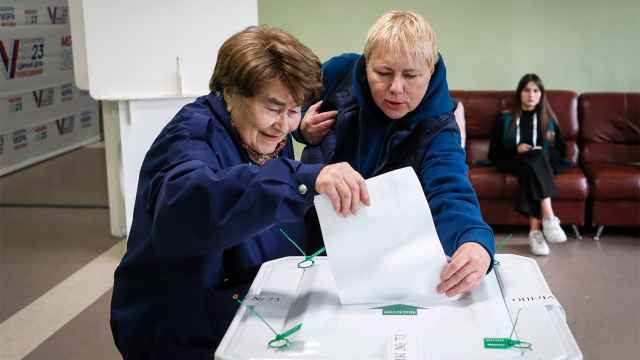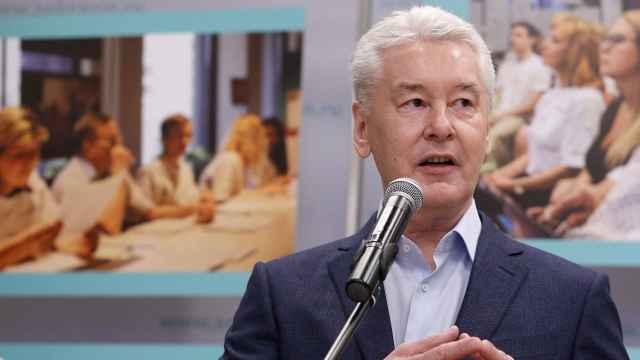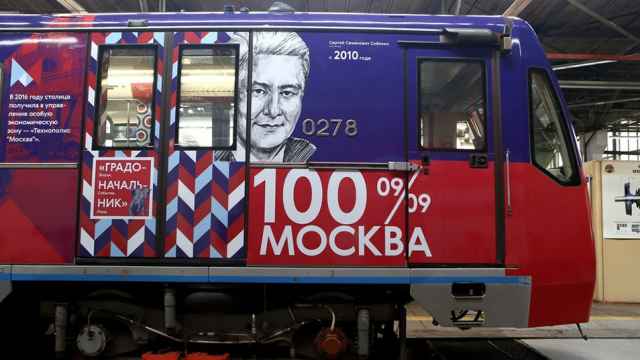On Sunday, Sept. 9, Moscow will hold mayoral elections. But we already know who the winner will be. Incumbent Sergei Sobyanin will win by an enormous margin in the first round. We also know that fewer than half of eligible voters will turn out to polling stations. In the worst case, it will be the lowest turnout in the history of Moscow’s mayoral elections, meaning around a quarter of all registered voters will turn up.
Sobyanin has no real rivals because of what is known as the “municipal filter.” Any candidate for mayor must win endorsements from at least one municipal deputy in 110 districts. (Moscow has 146 districts in total.) The problem is that only 62 districts have opposition deputies. That makes it is impossible for opposition candidate to take part in the mayoral election without the help of United Russia, the countries’ ruling party.
In the mayoral election of 2013, however, then acting mayor Sobyanin agreed to the participation of opposition politician Alexei Navalny. Sobyanin did so at the behest of the Kremlin, which wanted to increase his legitimacy when elected as mayor. To the surprise of many, including the Kremlin, Navalny won a third of the vote. Sobyanin barely avoided a second round run-off which, according to the unwritten rules of Russian politics, would have been a disgrace for United Russia.
This year the powers that be have decided to do away with this kind of democratic excess. Of 27 candidates in the running at the start of the race, 22 have been excluded. However, it would be a risk to let Sobyanin win with a higher percentage than Vladimir Putin did during the presidential election in March (76.6 percent). The Kremlin might get jealous. Less is more.
Sobyanin’s lack of competition is also a result of the opposition’s typical internal discord. It didn’t manage to agree on a candidate who might have been allowed to pass the municipal filter with United Russia’s blessing. Members of the liberal opposition party Yabloko could not even agree among themselves on a candidate this time. The infighting within the opposition was on full display during last year’s municipal elections. As a result, it did not win in enough districts to solve its municipal-filter problem.
Alexei Navalny played a destructive role here. Since winning a third of the mayoral vote in 2013, he has not acted like a politician interested in Moscow’s problems and in the run-up to the 2017 municipal elections, he refused to endorse any of the opposition groups. Consequently, the opposition fell out with each other, winning mandates only in those districts where the city authorities’ grip was insufficiently strong.
Members of the Kremlin-friendly opposition, like the Communist Party, Liberal Democratic Party and A Just Russia, are a separate matter entirely. They did put forward mayoral candidates and then cooperated with United Russia to pass the municipal filter. But their candidates are non-candidates with no political program and no intention of competing with Sobyanin.
The Communists, for example, could have put forward Pavel Grudinin, who made a name for himself as an interesting politician during the recent presidential election. Instead, they nominated the completely unknown Vadim Kumin, who will win the CP’s standard 10-15 percent and never be heard from again. The party had brighter candidates, however the Kremlin used various means to rule out their participation in the elections. The Communist Party’s approach is now reminiscent of 1996, when their leader Gennady Zyuganov ran against Boris Yeltsin for President — and his greatest fear was that he might win. This year the “pocket” opposition seems most concerned with not disturbing the Kremlin administration.
It’s clear, for instance, that pension reform is the topic of most political interest in Russia today. Although it doesn’t fall within the scope of the mayoral election, a clearly articulated position on pension reform could garner extra points for both the genuine and Kremlin-approved opposition. The Communists especially could benefit from a clear position on pension reforms, yet they have largely ignored the topic.
This whole election has the makings of a fixed football match, but where the outcome is known to everyone in advance. It’s a game in which the players pretend to win in front of half-empty stands and openly bored spectators.
Georgy Bovt is a political analyst. The views and opinions expressed in opinion pieces do not necessarily reflect the position of The Moscow Times.
A Message from The Moscow Times:
Dear readers,
We are facing unprecedented challenges. Russia's Prosecutor General's Office has designated The Moscow Times as an "undesirable" organization, criminalizing our work and putting our staff at risk of prosecution. This follows our earlier unjust labeling as a "foreign agent."
These actions are direct attempts to silence independent journalism in Russia. The authorities claim our work "discredits the decisions of the Russian leadership." We see things differently: we strive to provide accurate, unbiased reporting on Russia.
We, the journalists of The Moscow Times, refuse to be silenced. But to continue our work, we need your help.
Your support, no matter how small, makes a world of difference. If you can, please support us monthly starting from just $2. It's quick to set up, and every contribution makes a significant impact.
By supporting The Moscow Times, you're defending open, independent journalism in the face of repression. Thank you for standing with us.
Remind me later.



